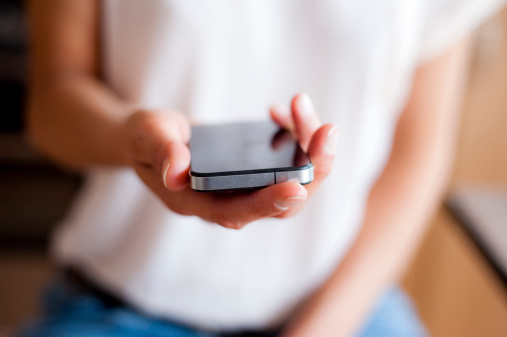
It was a chance encounter in my Santa Cruz neighborhood. Just down the street, I’d walked by her home many times, noticing her typing away furiously near her front window. When I later saw her laptop, unattended, just inside the glass, I was concerned that a thief might make it disappear.
The next time I saw her, I knocked on the door to offer my neighborly concerns.
It turns out we had a lot in common – including aging and technology. In fact, our chance encounter occurred just after I’d returned from a recent conference sponsored by the tech incubator Aging 2.0 that explored the latest tech solutions for the challenges of aging.
Kara Kytle is the driving force behind a smartphone app for caregivers, friends and family members called WithMe. It’s an elegant yet simple app that allows family or friends to schedule “check in” times with loved ones – typically older adults.
Kytle started the business when her mother lived alone in Michigan and began suffering memory loss. With Kytle working long hours in Silicon Valley as a software engineer, and her mom in a later time zone, phone calls weren’t always practical or possible.
“When I couldn’t reach her it was scary,” says Kytle, who now uses the app to check in every day with her mom, who at 74 now lives in Santa Cruz. Kytle also receives check-in responses from her father along with eight other friends and advisors who help her test the system.
After the older adult is sent a check-in reminder, they can use their smartphone to choose six pre-selected images like a smiley-face, a heart or other emoji. Optionally, they can choose text responses such as “Having a Wonderful Day!” or “Hugs!”
There are also more serious responses like “Call Me When You Can” or “I Could Use Some Assistance.”
If an older adult fails to respond, they’re sent more urgent reminders. If they are two hours late for a check-in, the family member or friend is alerted. (An unlimited number of people can be sent a check-in response.)
“The simple… daily interaction invites engagement without the emotional load of phone calls or the effort of composing email or text messages,” says Kytle. “We know anecdotally the software is being used for support in addiction recovery and to support a depressed friend.”
Today, WithMe has only about 150 users. The app is free for now. Like many entrepreneurs launching a new product, Kytle bursts into laughter when asked how much the service costs. But she’s slowly rolling out a voluntary payment system for users who can make a one-time donation or subscribe monthly. The ultimate goal is $8 a month per user.
What does the future hold for WithMe?
Kytle says the app is ideal for any vulnerable or at-risk population needing a simple, low-stress “check-in” – those who live alone, are depressed, are in recovery, or have physical or developmental disabilities.
“So much technology is about replacing people instead of helping people,” she says. “This is totally about the psychology and not the technology.”





